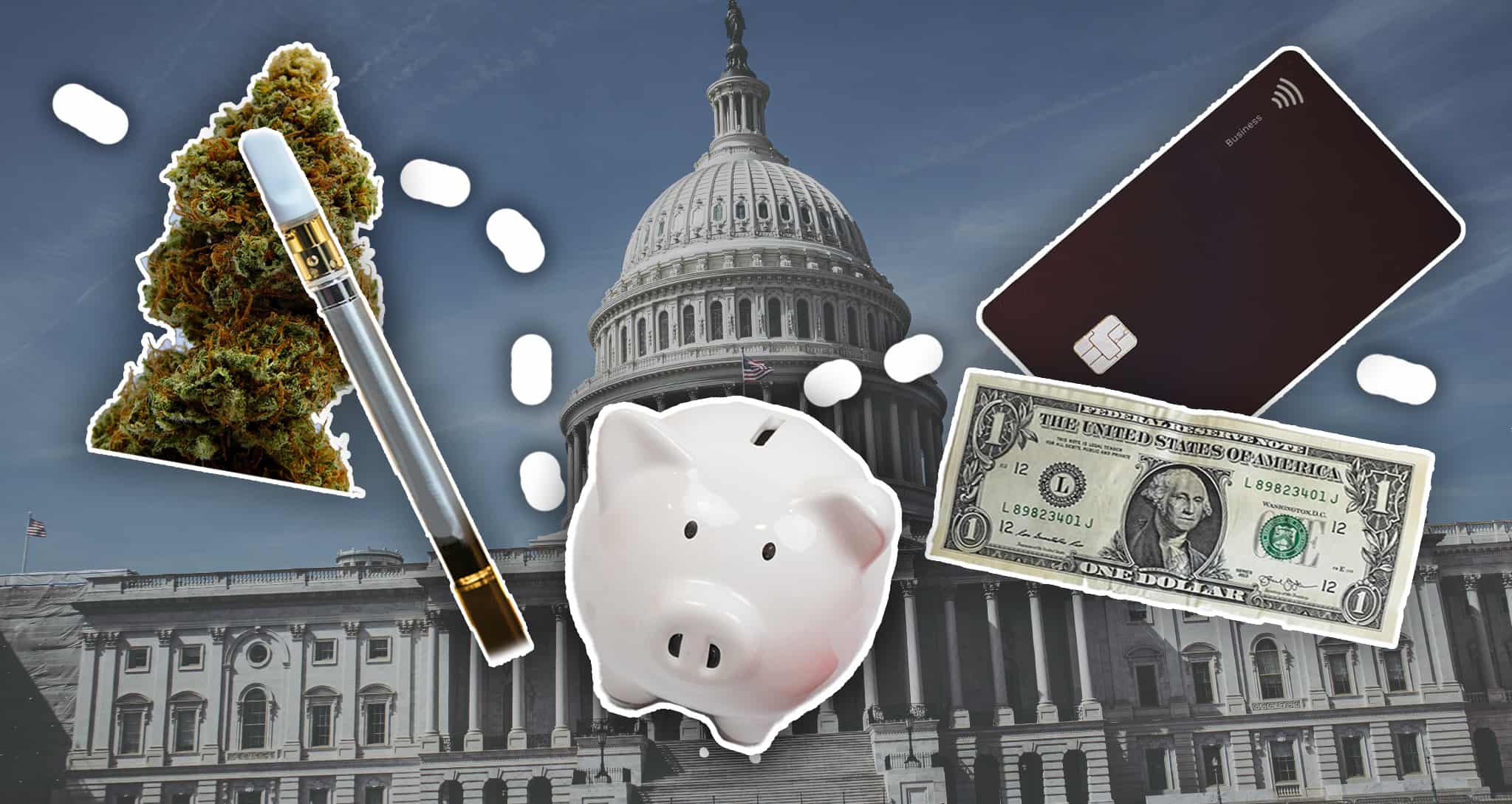After nearly a decade, the SAFE Banking Act may finally round home plate this year. But stakeholders worry it could be stripped down if it doesn’t pass by the end of this legislative session, and the industry could end up facing a “nuclear winter.”
The Secure and Fair Enforcement (SAFE) Banking Act has been in the works since 2013. Despite broad bipartisan support, it hasn’t managed to get through the United States Congress, getting dropped from the 2022 defense bill, and most recently the America COMPETES Act.
But industry leaders say there’s reason for hope this time. It’s already passed in the House and is headed to the Senate, where the Democrats have the tie-breaker vote. Lobbyists’ target is the lame-duck period between the November midterm elections and the new Congress members’ January 2023 swearing-in.
As long as politicians can keep working together on a moderate bill without pushing for too many “poison pills” that could spook the other side, industry leaders say cannabis workers and entrepreneurs should finally be able to get a checking account.
The push for SAFE Banking
The fact that cannabis businesses can’t bank like normal companies “probably impacts more of the cannabis ecosystem than almost any other issue,” said Michael Bronstein, the president of the American Trade Association for Cannabis & Hemp (ATACH).
Even in states where weed is legal, banks that serve them can be subject to strict federal “aiding and abetting” and “money laundering” laws. That’s a hard sell for the Wells Fargos of the world.
Sky-high card payment processor fees mean legal outfits often have to be cash-only, making them targets for crime — a “clear and present danger” to public safety, said Aaron Smith, the CEO of the National Cannabis Industry Association (NCIA).
A number of people have died during dispensary robberies.
The law-and-order benefit means many Republicans support the bill — as well as law enforcement and the American Bankers Association, Smith said.
That swell of support from groups you wouldn’t expect to support pro-weed-business legislation is why Smith said he’s “cautiously optimistic” the bill’s time has come.
“Frankly, the American Bankers Association is more powerful than NCIA,” he said with a laugh.
Things are a lot different now than they were a decade ago, said Bronstein, who’s been fighting for the bill’s passage since the beginning.
It’s gone from a handful of states pushing for banking rights to a national focus. Even some of the states that legalized cannabis early didn’t foresee the banking issues, he said.
Now, “we have years and years of operational experience with the banking systems. We know what the systems can and what they cannot handle,” he said.
Bronstein said he’s also seen a majority come to realize the law enforcement and public health benefits of banking equality.
“So I think a lot has changed and a lot has moved, and probably, hopefully, enough has moved to be able to get this passed,” he said. “That’s the hope.”
In a move emblematic of these shifting attitudes, the Joe Biden administration recently pardoned thousands of people who were federally convicted for simple cannabis possession.
In his statement, the president noted the “disproportionate” effects of the War on Drugs on Black and brown people and urged governors to follow his lead.
It was a life-changing move for thousands of people. But that spirit is exactly what could get in the way of SAFE Banking, Bronstein and Smith said.
Lobbyists worry SAFE Banking act additions will get in the way
If the SAFE Act were voted on as a standalone bill it would pass easily, said Bronstein.
“It is something that people believe is long overdue,” he added.
But Democrats want to include in the bill more cannabis record expungements and community grant and reinvestment programs — a progressive suite of measures dubbed “SAFE Plus.” It’s aimed at winning over people who see the core of the SAFE Act as too friendly to large institutions without addressing the broader effects of the drug war.
Sen. Cory Booker (D-NJ) has said the final text of SAFE Plus will likely be released after the November midterms. But lobbyists are already worried about the additions torpedoing the bill’s chances with Republicans.
“The thing that we’re seeing in the Senate is Republicans are saying, look, if you put too many policies on the bill, it will not maintain Republican support,” Bronstein said.
“The issue with SAFE Plus is that you might actually get SAFE Minus,” he said. “Right now it’s the art of the possible. What can we possibly get? And if the votes are there — however the votes are there — this policy needs to be enacted.”
But Bronstein said lobbying efforts have been going well. ATACH led a lobby day in September that included dozens of meetings with members on the Senate Banking Committee, where he said the group drove home a “get it done” message.
It’s been hard to find anyone opposed to the core of the bill, said Smith, who said his group had about 100 meetings with congressional offices last month.
The Republican support is a double-edged sword, though. If the House flips, some worry the GOP could pass a less social-justice-forward version of the legislation.
“I’m hopeful that a GOP-controlled House would pass SAFE but it wouldn’t likely include any other provisions Dems want, so it’s important they move on the bill before the end of the year,” Smith said.
If the SAFE Act doesn’t pass by the end of the year it could be a “nuclear winter for cannabis,” said Ed Conklin, the senior vice-president of government relations at major dispensary Curaleaf.
A recession is looming and credit is tightening, noted Sheri Orlowitz, the founder and board chair of the Council for Federal Cannabis Regulation. Without access to traditional banking services, smaller industry players could wither and die, she said, fuelling “more growth in the illicit market.“
Bronstein and Smith said they need help from the grassroots to get the bill over the line.
“These laws don’t just change themselves,” Smith said. “And it’s important that (people) engage with their elected officials, engage with associations like ours. That’s how we move the dial, is all working together.”





